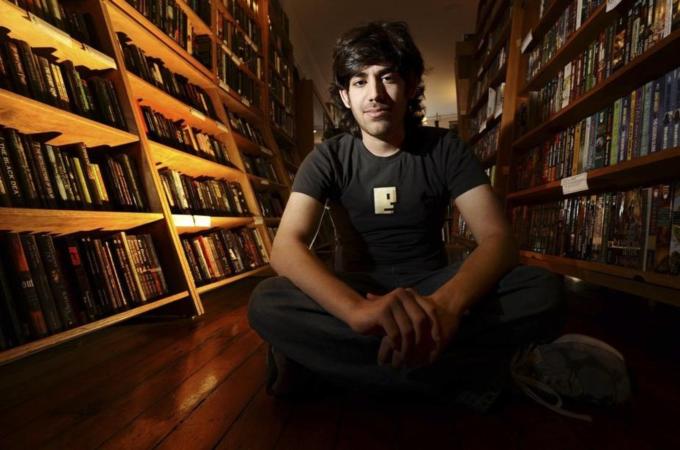I spent my last week in India crying quite a bit. Nothing
was really wrong; it’s just that I would stand and teach for 8 hours a day and,
afterwards, I would come home, take notes on everything that happened for the
last 8 hours, test out the lab for the next day, prepare to teach the lesson
the next day, and answer student questions and queries by email. To answer your
question, no, it’s not supposed to be like that. When you pilot a course or
some training material, it’s better to have one person teach, another keep time
(testing your estimated timings), and another to observe and take notes. I had
to take notes in my head for 8 hours and then quickly try to remember and write
everything down at night. Needless to say, each day I worked two 8-hour shifts.
(Don’t worry, I collect all those travel work nights as future holidays.)
For my second 8-hour shift, at home at night, I would work
with the TV, my good friend. Because my Hindi, stinks I watched an English
channel that would play a new episode of Packed to the Rafters (Australian
show), Joey and Molly (US TV), Grey’s Anatomy and Homeland each day. The show
that really made me cry was Grey’s Anatomy. Has anyone seen this show? While in
India I saw the season during which one doctor gets cancer and another gets in
an accident after deciding to become an army medic. They usually showed the
episode 4 times a day, so I had ample times to watch. I just kept thinking “how
can one hospital have SOO much drama among the doctors (forget about the
patients)? It’s unreal!” It was staggered, amazed, appalled, gripped, and sad.
I would laugh at myself crying over these fictional characters while preparing
to cry over the laughter of real life characters the next day—students laughing
in discomfort as they struggled with a topic. J

And they did struggle. The course I had to pilot had 3
prerequisites. A majority of the students were missing at least one of the 3
prerequisites. Many were missing 2. And some were missing all 3. So imagine the
task ahead of me each week. I made the decision not to worry about finishing
the course but to cover each topic well and finish wherever we finished. I
didn’t think anyone cared or noticed, but a few students walked up to me after
the second week and thanked me for doing teaching that way, instead of pushing
through. Again, it was a moment that took me aback. Students have never thanked
me for that before, not explicitly. It was nice.
It was also nice to receive the keys to my room. After a
week of people entering my room while I was in the toilet or changing (I think
in India the concept of personal space is not as strong as it is in other
cultures), a key to my room suddenly appeared! This was great news because it
meant that I could have some personal space to scrape off the white film on my
skin from the defective soap. Yes, the soap my guesthouse made me purchase
finished, so I was back to using their soap which turned my skin white with
each shower. Don’t worry, it only added 15 minutes to my morning routine.
Luckily no one knew what my normal complexion is, so no one complained. In
fact, they thought I had pretty skin. I couldn’t claim credit, though; it was
the soap. I only hope I can still have children in the future.
If you haven’t read about my adventures in my guesthouse you
should read my first post on it. On the whole, the adventures were fun and made
me laugh. After awhile, I even let go and decided to use my towel to dry myself
without reservation. Previously I was careful while drying so I could avoid two
spots on the towel where someone had blown their nose. Now, I didn’t care. I
just dried myself. Sometimes it’s nice to be dry and dirty, than wet and clean.
. . No? . . . Maybe it’s just me.
My favourite part of the day was mealtime. I would sit with
the guesthouse manager and a staff member of the university or an employee of
the guesthouse. And for the most part I would eat silently while they talked.
Occasionally I was included in the conversation temporarily and then
immediately forgotten. But for that one moment—when I could answer a question
with my accent that the guesthouse manager couldn’t understand—for that one
moment, I enjoyed being seen, though not understood. Then I would slip back
into anonymity. It wasn’t real anonymity but it sometimes felt like it from my
different cultural lens. I think speaking your home language in front of a
foreigner is not considered rude, here. I had no sense that they felt they were
being rude at all. It was just natural for them to speak Hindi and there was no
thought of me feeling awkward or marginalised. And so because there was no
intent, I didn’t feel awkward or marginalised.

The biggest reason I felt included was because the
university staff and guesthouse manager called me by name. They knew my name.
One of my favourite gospel artists, Israel Houghton, has a song called “He
Knows My Name.” At first I didn’t understand the importance of the concept. But
when, again, it was the last day of my last week in India, and the students
were hugging me, taking photos with me, and telling me they will miss me, I
began to wonder about why they would miss me. Why were they touched so much?
The students told me.
“Sir, instructors here don’t know our names. If an
instructor knows your name, it’s only after 4 months and many one-on-one
interactions. Usually, if you are addressed at all, it is by number.”
“Oh, I’m sorry to hear that. I can see how that can be
hard.”
“Yes, sir. And you learned our names on the first day! That
was amazing.”
“Well, yes, it’s important to me to try and do that. I know
people like to hear their names.”
“Yes, sir, we do like to hear our names. It makes us feel
special. Sir, you must be knowing some Hindi because you seem quite comfortable
learning the names and saying some of the pronunciation.”
“Well, I’m new to it, but some of the names I’ve heard
before.”
“Well, sir, thank you. Thank you for knowing my name. It is
so nice to have a professor and to be able to say ‘He knows my name’. It’s more
than feeling special. We’re feeling special, yes. But it’s that we couldn’t
hide. You knew us. You called us by name. You saw us. We were visible to you.
We had to participate. We could not hide. That is something we have not
experienced. Thank you so much.”

The words humbled me. Honestly, I didn’t know most lecturers
didn’t know them and that if a lecturer did address them, it was by number. I
didn’t know it took 4 months in the few cases when a lecturer did know them.
And I didn’t know it was easy to hide and not be seen. If anything I thought
being seen in my class would be uncomfortable. And it was, at first, for them.
But in the end they were thankful that someone saw them, heard them, and wanted
to hear them. In the end, they were thankful that the professor cared enough to
screw up their names, to know their beautiful names, to ask where they were
yesterday, to ask if they recovered from being sick, to ask how the homework
went even if they didn’t do it. And I am thankful for all the many teachers I
have had who did the same for me.
Mrs. Bergeron—she knows my name. She said I had a voice to
say something.
Ms. Taylor—she knows my name. She first called me an artist.
Mr. Seible—he knows my name. He called me a leader.
Mrs. Williams—she knows my name. She first called me a
teacher.
Ms. Young—she knows my name. She first called me creative.
And the list goes on . . .
He knows my name . . .








